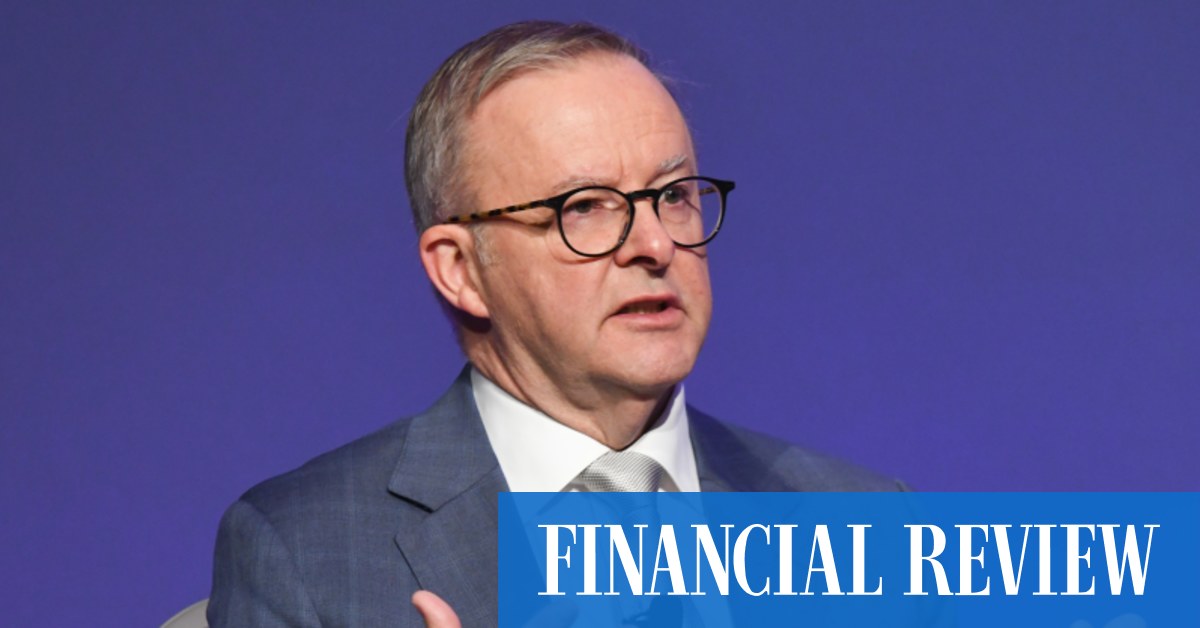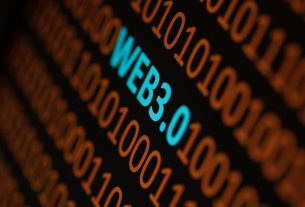China imposed sanctions on $20 billion worth of Australian exports in 2020 after the former Morrison government called for an inquiry into the origins of COVID-19. China last month resumed Australian coal imports and is looking to relax restrictions on cotton, beef, seafood, timber and some other products.
US ambassador to Australia Caroline Kennedy told the Summit that Australia was a role model for the rest of the world in standing up to China’s economic coercion.
“Other countries really took notice of Australia’s response to the economic coercion it faced, and it set a great example for others and inspired others to think about how to become more resilient as well. That has had a very important impact to the rest of the world,” Ms Kennedy said.
On US-China relations, she said: “Certainly no-one wants conflict, so the more dialogue we can have on all levels is better.”
End the ‘chest beating’
Fortescue Metals Group founder Andrew Forrest said political leaders needed to do more to bolster relations with the Asian superpower. Almost 88 per cent of Fortescue’s revenue came from China in the year to June 2022.
“I would just like the chest beating between North America and China to stop because, while it’s a great way to get yourself elected, particularly in the mid states of North America, it doesn’t do anything for the world,” he said.
“It doesn’t bring on peace, it doesn’t improve livelihoods. It doesn’t improve standards of living. It makes the world a less stable, less comfortable place to live in.”
Yanzhong Huang, senior fellow for global health at the Council on Foreign Relations, said Australia had a crucial role to play engaging with China to resolve world health issues.
“Australia could play a more constructive role in engaging China at a time when the US basically had really no interest in engaging the country, even over issues like public health,” he told the Summit.
Dr Forrest will be among the business leaders travelling with Mr Albanese to India, following a similar trip by political and business leaders to Indonesia last year.
Dr Forrest, who will lead his own delegation to China later this month, said the Australian government should be taking business delegations to China in the same way it had done with Indonesia and India.
Some business leaders said they were wary about investing in China at a time when the country’s economic growth was slowing, the government was making more unpredictable policy decisions, and a technological cold war was playing out between Beijing and Washington.
Future Fund chairman Peter Costello said he was concerned US restrictions on exporting high-tech equipment to Chinese companies would be expanded to investments, which meant investors could be caught out if they were not prepared.
“As this decoupling goes on I can very easily see investment bans being introduced. So, you might find yourself stuck in a whole lot of companies that suddenly get banned and in order to comply with US sanctions you are going to have to get out,” Mr Costello told the Summit.
He said it was forseeable that investors in Chinese companies could find themselves in a similar position to those who had to write down their investments in Russian stocks last year.
China on Sunday announced a lower-than-expected 2023 growth target of “around” 5 per cent and flagged a consumption-led recovery rather than relying on the big stimulus packages of the past.
BHP chief executive Mike Henry said China’s latest economic forecast was not unexpected, and the miner remained confident in the country’s demand for Australian commodities.
“You can be pretty sure the targets set in China are targets they are confident in meeting. We remain quite optimistic about the pick-up in the Chinese economy over the course of the year,” Mr Henry told the Summit.
He said policy changes to stabilise China’s property market were starting to work. However, China’s steel demand was peaking as expecting.
“As the Chinese economy matures, [and] steel demand peaks and begins to decline, the iron ore market is going to come under a bit of pressure.”
Read more from The Australian Financial Review Business Summit
- Higher rates, tougher times ahead while Australia lacks a growth plan Australia needs a more ambitious growth plan to pay for the mounting cost of national security and the clean energy transition in a volatile geopolitical world, business leaders have warned.
- Woolies, CBA CEOs say trading is ‘strong’ despite rate rise hits As the RBA raised rates again, the CEOs of CBA and Woolworths said spending is strong, and food inflation is persistent, pointing to challenges for the RBA.
- Chanticleer | Why big bank profits will help with what comes next Matt Comyn knows big bank profits provoke an emotional reaction. But he argues that today’s profits will be tomorrow’s economic buffers.
- Cormann slams political hostility to ‘holistic’ tax reform Former Coalition finance minister, now OECD boss, Mathias Cormann laments Australia’s lame tax ‘debates’, which he says are fundamentally about tinkering around the edges to fix bracket creep.
- Greens’ gas objections impede clean energy transition: PM Anthony Albanese says the rhetoric of the Greens and others who want a ban on gas “doesn’t stack up”.
- Chanticleer | Dr Doom predicts ‘five wars’ might just ruin it all for Australia Nouriel Roubini says governments will need to fight five highly inflationary “wars” in the coming decades. This will lead to four key challenges for Australia.
- Investment returns will be weaker this decade: Costello Peter Costello says more rate rises and an unemployment rate above 4 per cent will be needed to tame inflation, as he warned of falling investment returns.
- ‘Very high rates’ needed to stop US consumers: Bank of America CEO The Federal Reserve will have to hold rates higher for longer as the US economy powers along, says Bank of America chief Brian Moynihan.


